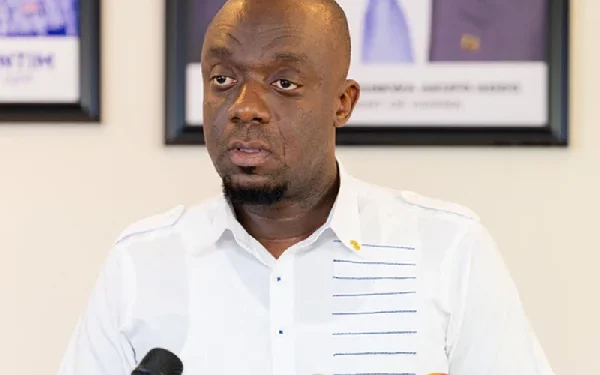Tax expert, Francis Timore Boi, has expressed the need for the Ghana Revenue Authority (GRA) and district assemblies to collaborate in the collection of property tax rates in the country.
According to him, this move will ensure the efficient and seamless collection of rates from relevant commercial and residential property owners. He revealed that due to the capacity of the GRA, it can help district assemblies have a wider reach in collection of these taxes.
“For me, I think a collaborative approach is the best because if 261 districts collect GHC39 million, that is very woeful. Again, let’s not forget that GRA is also mandated to collect what we call the rent tax, so, a collaborative approach will mean that if they are able to help work together with the district assemblies to collect the property rates, they can use the same information to collect the rent tax…”
Francis Timore Boi
Mr Boi noted that rent for commercial property is 15% on the gross amount that one receives, and that for residential property, it’s 8%. With this, he explained that one would hardly see landlords paying rent and tax on amounts they have received from their tenants.
Due to this, he stated that “the best approach would have been the collaborative approach”.
“… Indeed, if you look at the budget, from GHC39 million, the government estimated that they’re going to raise GHC165 million, which is a triple jump from what the district assemblies are doing. So, I think that the district assemblies have not been doing well in the past, the best is for us to get the GRA, collaborate and again, we can also leverage on it and enforce significant part of the laws that we have. Look at East Legon, the whole of the year in 2022, they just raised GHC5.3 million from huge properties that are located in East Legon and that is not fair.”
Francis Timore Boi
GRA not mandated to collect property rates
Reacting to the call by the Chamber for Local Governance on parliament to stop GRA from collecting property taxes using a third-party company, Mr Boi conceded that per the local government Act section 1(44), the district assembly is the only body mandated to collect property rates. In light of this, he highlighted that over the years they’ve been doing that and were using third parties to communicate to the public.
However, he lamented that over the years, the problem has been the poor performance of the district assemblies in collection of rates.
“If you look at the 2023 budget that was presented to parliament, out of the 261 district assemblies that we have in Ghana, the total amount that they were able to raise from property rates was just GHC39 million. So, the government thought it wise to collaborate with the GRA, so that even though GRA is not legally the one mandated to collect the property rates in the various districts, GRA has the capacity and know-how when it comes to tax collection.
“So, the government made that proposal and did some piloting, and they came out with a platform called the Unified Common Property Rates platform… So, legally, I can say that the GRA is not mandated, they do more of the income tax and indirect tax collection – the district assemblies are those that are mandated under section 1(44) under the local government Act to do the collection.”
Francis Timore Boi
Commenting on whether the third-party company used by GRA is the prudent way to go, Mr Boi explained that it depends on the level of engagement between the two parties involved. He revealed that currently, there’s a common platform where one can go there to register, although the problem has been traction on the site for persons who actually register their properties.
“So, possibly, the GRA is using the third parties to make sure your property is registered. Before, we were sending the property owners letters but nobody follows up. So, GRA may be using some third parties to enforce the registration. So, after your property is registered, you go online and can pay either with your electronic card or mobile money.”
Francis Timore Boi
READ ALSO: GNMTA Demands Payment of 14 Months Allowance Arrears





















